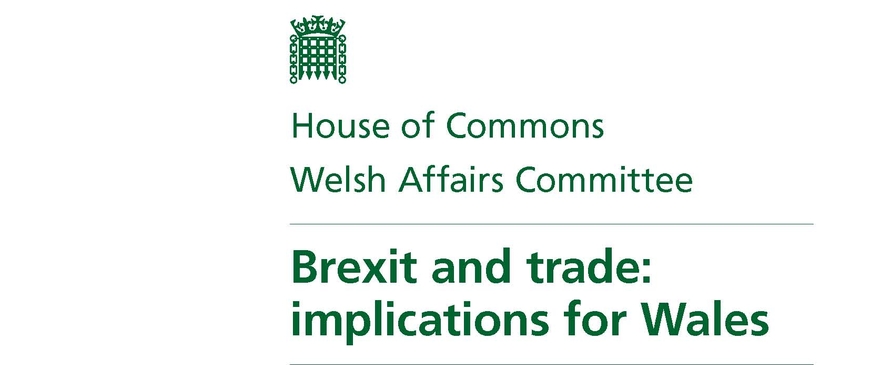
Brexit and trade: Implications for Wales
In his evidence to our inquiry, Sam Lowe, Centre for European Reform, also emphasised the importance of a trade agreement with the EU, in particular for agriculture, as high tariffs would apply to beef, lamb and other areas if trading with the EU on WTO terms: We just have to be blunt about it. The EU agreement is incredibly important to Welsh agriculture. If you look at where exports currently go, it is largely the European Union [ … ] If you look at some of the modelling on pricing, if there is a WTO Brexit you would expect the price of lamb the UK to collapse. That could be good for consumers in the short run, but that is because they are going to have difficulty selling into the EU, so it is going to get dumped on the UK market. Or to combat that you are going to have to just slaughter the sheep.
...Sam Lowe, Centre for European Reform, told us that the UK’s current customs infrastructure “is not large enough yet to cope with the demand”, and that there is “probably not quite enough time, if they want to deal with it themselves, to train up their own people
...Sam Lowe, Centre for European Reform, was unsure whether businesses are prepared for new regulatory processes, and that the implications of the border operating model “has completely cut through”.
...Sam Lowe, Centre for European Reform, suggested that major exporters based in Wales were predominantly foreign owned and formed part of a pan-EU supply chains, and therefore sustaining this investment in Wales should be considered in future trade negotiations. He added that New Zealand is currently not making use of some capacity it has to export to the UK. He doubted a “big influx” of lamb would enter the UK from New Zealand in the event of securing a trade deal, which should allay the concerns of Welsh farmers that their produce would not be sidelined.
... Sam Lowe, Centre for European Reform, stated that an FTA with Japan would be “important for some businesses in Wales” as they are Japanese owned.140 Shanker Singham, Competere, said that the Japan agreement is part of an “overall trade policy” that includes Australia, New Zealand and the US.
... Sam Lowe, Centre for European Reform, agreed that removing the restriction would provide a new market for Welsh sheep farmers. NFU Cymru raised concerns that trade interests in markets such as the US are “fairly modest owing to historically low consumption of lamb in the US”.
... Sam Lowe, Centre for European Reform, suggested that Welsh farmers are “overly exposed” to the EU market, which creates challenges for resilience.
...Sam Lowe, Centre for European Reform, raised concerns about food safety and standards, in particular sanitary and phytosanitary issues related to a US trade deal: The UK has decisions to make here, because if the UK wants a trade agreement with the US, my view is it will have to concede on hormone beef and chlorinated chicken. That is the only way it gets done because that is just not something that gets through Congress. The UK could hold the line on medical pricing and lots of other things. Sorry, that is going to have to change. That is a decision that has to be made. It is a domestic decision: is that something people want to change? He added that Wales could regulate “to a higher degree”, but any regulation “would not be able to prevent goods entering Wales from the rest of the UK on that basis”.
Full report available here
